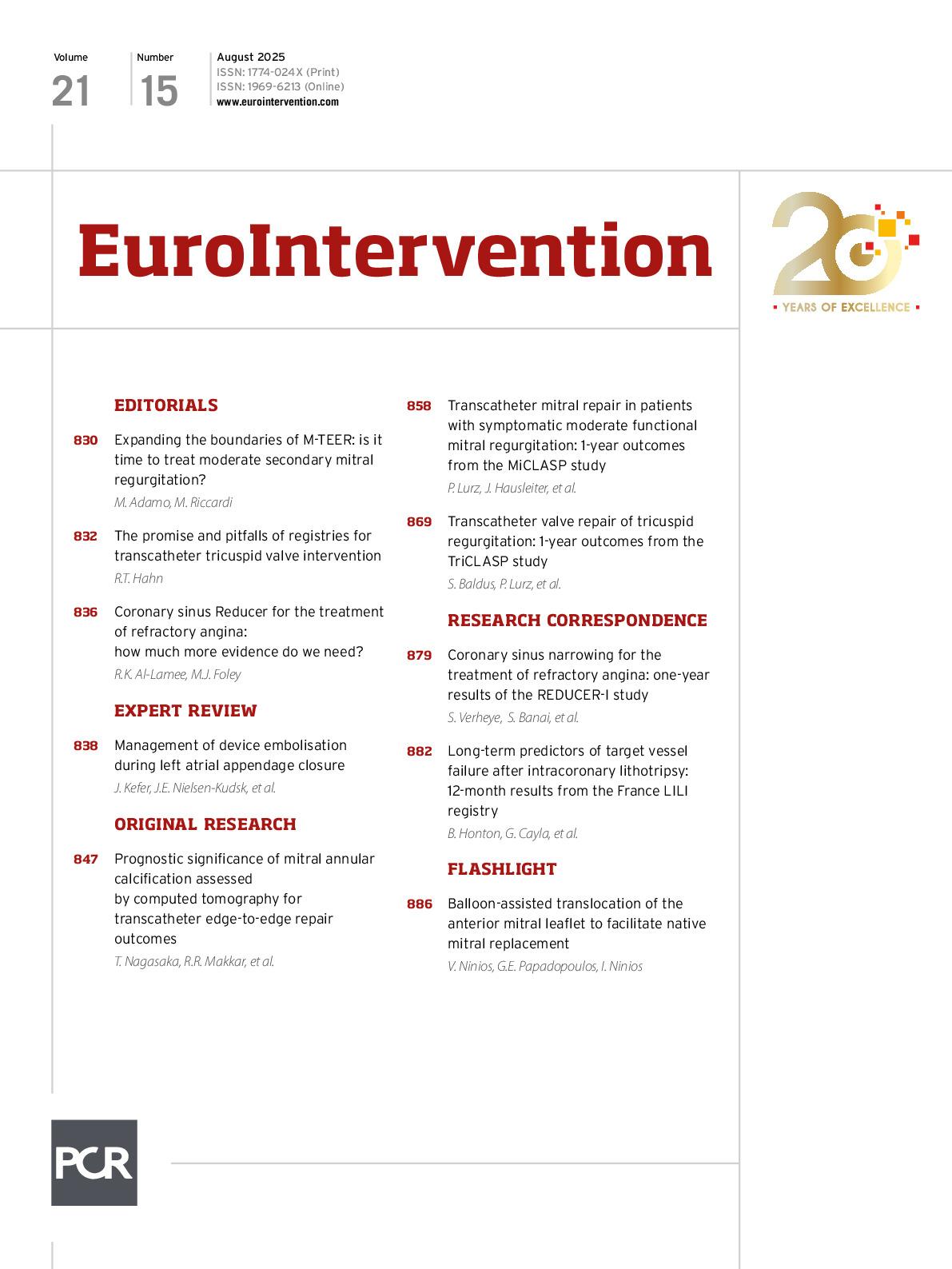Refractory angina is characterised by chronic chest pain due to reversible ischaemia which is unable to be controlled with optimal medical therapy or revascularisation1. Patients with refractory angina suffer severe limitations in daily activities, have a poor quality of life, and are a significant strain on healthcare systems due to their frequent rehospitalisations2. The coronary sinus (CS) Reducer (Shockwave Medical) creates a focal narrowing in the CS lumen in order to redistribute myocardial blood flow into the subendocardium of ischaemic myocardium. Randomised placebo-controlled trials such as COSIRA3 and ORBITA-COSMIC4 have shown significant improvements in frequency of anginal episodes and in quality of life in patients treated with the CS Reducer. The 6-month analysis of the REDUCER-I registry reported a 1.6% rate of major adverse cardiac events (MACE) for the primary safety endpoint and 69.8% of patients with improved Canadian Cardiovascular Society (CCS) class at 6 months for the primary effectiveness endpoint5.
We report here the one-year follow-up results of the non-randomised, real-world REDUCER-I study of patients with refractory angina treated with the CS Reducer. From 2016...
Sign up for free!
Join us for free and access thousands of articles from EuroIntervention, as well as presentations, videos, cases from PCRonline.com

